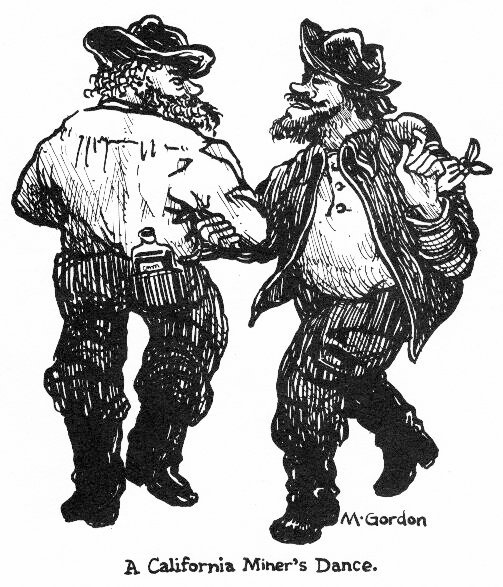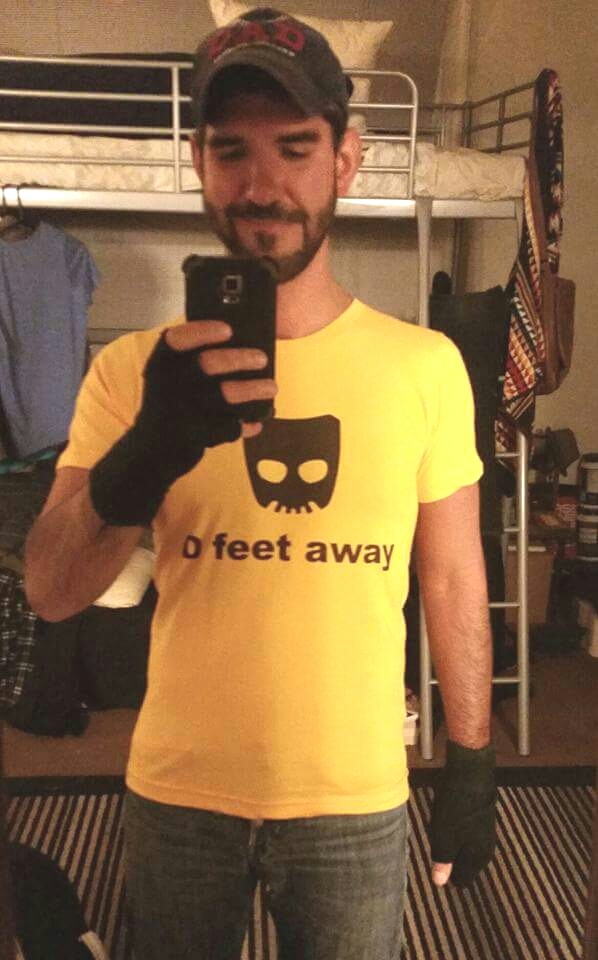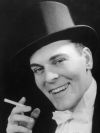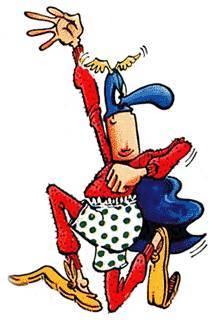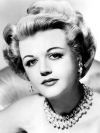Assassins
Gothampc
Broadway Legend Joined: 5/20/03
#25Assassins
Posted: 4/24/14 at 2:41pm
To me, Something Just Broke is a bad song. The next production that I see that uses it, I'm going to get up and go to the bathroom during the song. It's a waste of time.
Maybe someone can explain the song to me. I get the intention behind it, (I personally felt it during 9/11) but it seems like a sentiment that has been shoe-horned in and seems to come out of nowhere. I think it breaks the dramatic tension coming out of the Hail to the Chief music.
#26Assassins
Posted: 4/24/14 at 3:43pm
"Oh brother! Words fail me as to how really uninformed that statement is."
Yeah, that's the problem: *I* am uninformed. Yet somehow I'm not the one claiming that the all-too-centrist Barack Obama is a fascist, a communist, the Anti-Christ AND a sleeper agent planted by Al Qaeda...
As far as I'm concerned, the Tea Party movement is a direct result of diminishing American expectations with little real understanding of the socio-economic factors at play. And so the Tea Partiers allow themselves to be cynically manipulated into scapegoating everyone from our "Kenyan-born" president to gays and immigrants.
Anyone who thinks the assassins in the play are aberrations should take another look at the rise of concealed-carry and "stand your ground" gun laws (even though violent crime rates have been declining for decades) and the juries who are acquitting white people who shoot minorities.
Why do white Americans feel so under siege? It's partially because of declining standards of living due to increased economic competition from overseas, but it's also because our national myth that ANYBODY can thrive if s/he works hard has never been entirely true.
***
I do want to be clear that Brechtian theater such as ASSASSINS is not aimed at passing specific legislation. (Brecht himself found that theater wasn't very effective at getting people to do one thing or another.) Instead it's aimed at provoking our critical awareness of the world in which we live.
(Weidman knows this, even if Sondheim seems not to in some of his interviews.)
ASSASSINS isn't saying anything so simplistic as "the American dream is bad". Rather, it wants us to be aware that the myths we tell ourselves have consequences, many of which are unintended.
Gothampc
Broadway Legend Joined: 5/20/03
#27Assassins
Posted: 4/24/14 at 4:07pm
"As far as I'm concerned, the Tea Party movement is a direct result of diminishing American expectations with little real understanding of the socio-economic factors at play. And so the Tea Partiers allow themselves to be cynically manipulated into scapegoating everyone from our "Kenyan-born" president to gays and immigrants."
The Tea Party movement is not about diminishing American expectations. The Tea Party movement is about how there is too much government control of our lives.
Additionally, Assassins is the wrong show to make your point. Every time there is a nutjob going "postal" (see that government reference?) they always turn out to be some far out liberal "progressive" Democrat.
Also, take a look at who the Assassins are trying to kill:
Abraham Lincoln - Republican
James Garfield - Republican
William McKinley - Republican
Franklin Roosevelt - Democrat
John F. Kennedy - Democrat (and there's always speculation about who actually killed him)
Richard Nixon - Republican
Gerald Ford - Republican
Ronald Reagan - Republican
Assassins is about a bunch of liberal freaks trying to kill non-liberals they don't agree with.
#29Assassins
Posted: 4/24/14 at 4:11pm
I thought Goth's assertation that Obama is going to round up and inter the Jews soon was the funniest/craziest thing he's said in a while, but as he proves just two posts above, he never waits long to top himself.
Gothampc
Broadway Legend Joined: 5/20/03
#31Assassins
Posted: 4/24/14 at 4:11pm
"The Republican party has to stop "claiming" leaders from the 19th century.
ESPECIALLY Lincoln."
The Republican Party was formed because Democrats (and the other parties) didn't condemn slavery. And even though slavery has officially been abolished, Democrats want to keep people on the government plantation.
#32Assassins
Posted: 4/24/14 at 4:15pm
Okay, goth, I'm going to say this once and then drop it, since I believe political discussions are supposed to be confined to a different board.
But your false equivalence of Republican/Democrat and conservative/liberal is precisely the sort of simplistic thinking that the Koch brothers have been able to exploit. Today's GOP isn't even the Republican party of my youth, much less the party of Lincoln. And John Wilkes Booth a liberal? Is English not your first or even second language?
No wonder you find the characters of ASSASSINS "cartoonish"! For you, the show must be like looking into one of those carnival funhouse mirrors!
Updated On: 4/24/14 at 04:15 PM
#33Assassins
Posted: 4/24/14 at 4:17pm
The Republicans and Democrats of the 19th century are NOT the Republicans and Democrats of today. You can't even make a clean argument that the parties fully flip-flopped, because SO MUCH HAS CHANGED.
Which is why we're seeing far-right politicians TODAY embracing 19th century southern Democrat concepts like nullification and "states rights."
This is irrefutable.
Gothampc
Broadway Legend Joined: 5/20/03
#34Assassins
Posted: 4/24/14 at 4:21pm
"the sort of simplistic thinking that the Koch brothers have been able to exploit"
The Koch brothers, oh my Lordy, the evil Koch brothers. I bet you don't even know who they are but they certainly have you thinking simplistically. We'll just sweep it under the rug that the Koch Brothers have made political donations to Harry Reid, Nancy Pelosi and Hillary Clinton, among others. After all, why should the truth get in the way of a liberal target.
#35Assassins
Posted: 4/24/14 at 4:22pm
As someone who grew up in the South during the final days of Jim Crow, I was raised thinking of Republicans as the LIBERAL party in contrast to the Dixiecrat/segregationist wing of the Democratic party.
I even registered as a Republican when I was first old enough to vote. (Many moons ago, I promise you.)
Updated On: 4/24/14 at 04:22 PM
#36Assassins
Posted: 4/24/14 at 4:27pm
http://en.wikipedia.org/wiki/Political_activities_of_the_Koch_brothers
#37Assassins
Posted: 4/24/14 at 4:43pm
I'm not even gonna dip a toe into the political discussion above. But I do want to take issue with something my good friend Matt has said.
I don't think the use of the Balladeer is inconsistent. It's actually very specific...he is only used to aid in the telling of the 'successful' presidential assassins. All the other would-be assassins need to speak for themselves. Their lives are inconsequential. The ones who managed to kill a president are given folklore status through the use of the Guthrie-like Balladeer. In my opinion, the telling of the stories is corrupting...leading to the Balladeer being overwhelmed by the 'other national anthem' and giving in to the corruption, becoming Oswald (at least in some productions). I think the Balladeer only makes sense if he's affected and corrupted by the assassins. Otherwise, he just disappears and...what?
As for Something Just Broke, I vehemently agree that it pulls the focus onto people we don't know or care about. Had Sondheim created smaller moments after each presidential assassination giving voice to what the public was feeling, then it could work. In fact, I would argue that those moments should have been moments of optimism and strength, with the Kennedy assassination being the moment something just broke.
However, I do think the song is stunning. As sung on its own in Sondheim on Sondheim, it was chilling and beautiful in a way that it wasn't in the otherwise extraordinary revival of ASSASSINS.
#40Assassins
Posted: 4/24/14 at 5:26pm
I don't think the use of the Balladeer is inconsistent. It's actually very specific...he is only used to aid in the telling of the 'successful' presidential assassins.
Issue noted, my good friend RoobieJ! Yes, this is true, but I don't think that comes across clearly in any production I've seen. It's the "why" that is, to me, very weak in the text. Again, some conceptual staging and/or costuming device could illustrate this more clearly (introducing the Balladeer as a variation of an icon of naive American idealism, such as Uncle Sam, or possibly as a stereotypical college professor, perhaps). But specifically defining the Balladeer as the voice of naive American idealism, that only comments on the successful Presidential assassinations (except one), who gets corrupted by the cynical resentment of all the assassins, could perhaps be a little too specific to be clearly conveyed (absolutely nothing else in the show is THAT abstract). Especially if the Balladeer does not transform into Oswald during Another National Anthem. And I've only seen the "Guthrie"-ism of the Balladeer in the Roundabout, but it didn't really clarify anything. At least, not for me. Perhaps I just focused too much on why the Balladeer was singing what he was singing. Sometimes he supported the character, sometimes he disagreed with the character, sometimes he was objective, sometimes not. I didn't think the acute level of specificity ascribed to the character was clear at all.
I think the Balladeer only makes sense if he's affected and corrupted by the assassins. Otherwise, he just disappears and...what?
He doesn't get corrupted. Woody Guthrie or the previously popular "early 20th century sorta folksy cap-wearing guy" gets chased off stage.
Gothampc
Broadway Legend Joined: 5/20/03
#41Assassins
Posted: 4/24/14 at 5:46pm
"Far from being opposed to him, Guiteau was a supporter of Garfield's--so much so that he thought he deserved credit for his election."
And Mel White was a huge Evangelical. What's your point?
#43Assassins
Posted: 4/24/14 at 6:21pm
One thing about the structure... OK, well, several things.
In the original production--which I have seen a VERY fuzzy video of a few times (some of which I see is online, you know where, as is the entire revival production,) the fact that it was a revue seemed to be played up more with less of a clear arc. So it made more sense, in a way, about the fact that there might be a ballad right next to a cakewalk, etc, even if they were pastiches of different eras. By giving more of a role to the Balladeer, bumping up the Proprietor's already kinda confusing role (a character we haven't discussed much,) etc, over time with the revisions they seem to want to clear this up, but I also think it makes it more confusing, if THAT makes any sense (another reason I think the original version, flaws and all, simply works more.)
While obviously a very bleak revue, it does sorta make sense--ie you have the comic one man sketch, the different types of numbers, etc. If there is any sort of shape to the order of the routines, it does seem that, after the intro, you have a pretty serious narrative number with Booth, and then numbers which mostly are "lighter" (in a dark way) until Another National Anthem when the Assassins take over the revue for real and give the Balladeer the boot.
Incidentally, the only published version of the libretto is largely the original one (published in 1993 but though I don't have my copy here, I believe it is basically the original script with no Something Just Broke, etc--it also describes the slides to use for scenes, which was the original design.) So not the revised version which has a TON of small but significant changes aside from just an extra song and the Proprietor returning to lead Another National Anthem which seems to make him a cynical version of the Balladeer, and is, I believe, the only currently licensed version.
And just because this performance is so great, here's the original Garber/Cassidy Ballad of Booth at the Carnegie Hall Sondheim concert, which NPH and Cerveris simply can not match for me.
#44Assassins
Posted: 4/24/14 at 8:20pm
Interestingly, I just saw this article about Squeaky Fromme in my nightly reading of the Daily Mail (don't judge).
70 percent certain she'd be found not guilty
#45Assassins
Posted: 4/24/14 at 8:22pm
I saw the original production, and I don't remember much, really, about the dramaturgy. I just remember the extraordinary performances, and the feeling that it was unlike anything I'd seen before.
I can't say it's a show or score I revisit often, but I found it remarkable at the time.
#46Assassins
Posted: 4/25/14 at 9:51pm
Eric, you know I love NPH, but NOBODY's voice sits so perfectly on the Balladeer's notes as Patrick Cassidy's. (I saw him and Annie Golden in a staged reading about 10 years ago and though his high notes aren't quite as pure, Cassidy still sings the part like no one else.)
(And BTW, you are correct that the published libretto does not include "Something Broke".)
Gothampc
Broadway Legend Joined: 5/20/03
#47Assassins
Posted: 4/25/14 at 10:07pmNo only did the role fit Patrick Cassidy's voice but he just "was" the character. Much like Keith Carradine just "was" Will Rogers.
Owen22
Broadway Legend Joined: 2/24/11
#48Assassins
Posted: 4/27/14 at 11:04amI'm pretty sure "Something Just Broke" was written to quell some people's reactions to the piece stating the show was too sympathetic to the title characters. As a matter of fact, in the early preview of the original show I saw, the Balladeer did not even yet sing the lines referring to them as "madmen" or the declamatory "angry men don't write the rules and guns don't write the wrongs". But I assume early on the creatives were getting negative feedback about where their political and "moral" allegiances seemed to be.
#49Assassins
Posted: 4/27/14 at 8:05pm
ASSASSINS is so brilliant it hurts. "Another National Anthem" is one of my favorite group number from a musical ever. It is a severely underrated Sondheim, and is hard to do without very strong actors, albeit a shorter (and relatively easier) score than his other shows. I hope I will get to direct it someday, hopefully sooner rather than later...
I have to say though, I am definitely in the camp that Oswald and Balladeer be seperate characters. I think it's extremely gimmicky when it's doubled, and doesn't really make sense to me. I also think the Proprietor's role is confusing as well, but that's besides the point.
Food for thought: How would people feel about an all-female or gender-blind production of Assassins? I could see it being really fascinating if you could get the right voices for it.
Updated On: 4/27/14 at 08:05 PM
Videos


